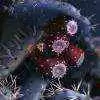-
Welcome to Celiac.com!
You have found your celiac tribe! Join us and ask questions in our forum, share your story, and connect with others.
-
Celiac.com Sponsor (A1):
Celiac.com Sponsor (A1-M):
-
Get Celiac.com Updates:Support Our Content
Iodine In Organic Dairy
-
Get Celiac.com Updates:Support Celiac.com:
-
Celiac.com Sponsor (A17):
Celiac.com Sponsor (A17):
Celiac.com Sponsors (A17-M):
-
Recent Activity
-
- julie falco replied to elisejunker44's topic in Gluten-Free Foods, Products, Shopping & Medications2
Schar's products contain wheat!
thank you that is good to know that it is safe for celiac people -
- Jmartes71 replied to Jmartes71's topic in Coping with Celiac Disease3
Second chance
Current careteam is still up in the air about my celiac thanks to me googling "celiac specialist" what popped up was once known as a good name hospital back in the days. I went in for answers for my declining health, it was the autoimmune part that did me in, being a former bus driver.I read that in my medical records so easily downplayed, i refused the... -
- Scott Adams replied to Florence Lillian's topic in Post Diagnosis, Recovery & Treatment of Celiac Disease1
Gluten-Mimicking Proteins that can affect some Celiac individuals.
Thank you for sharing your experience, Florence. It’s important to clarify, though, that proteins like zein in corn, panicin in millet, and kafirin in sorghum are not considered gluten and have not been shown to trigger the same autoimmune intestinal damage seen in celiac disease. Some people with celiac disease do report symptoms with certain gluten-free g... -
- Scott Adams replied to Jmartes71's topic in Coping with Celiac Disease3
Second chance
It’s true that awareness of celiac disease can vary among physicians, particularly outside of gastroenterology, and many patients end up educating their own providers. Reaching out to someone you trusted for 25 years makes sense if you felt heard and supported. That said, celiac disease management often benefits from a team approach, including a knowledgeable p...
-



Recommended Posts
Archived
This topic is now archived and is closed to further replies.